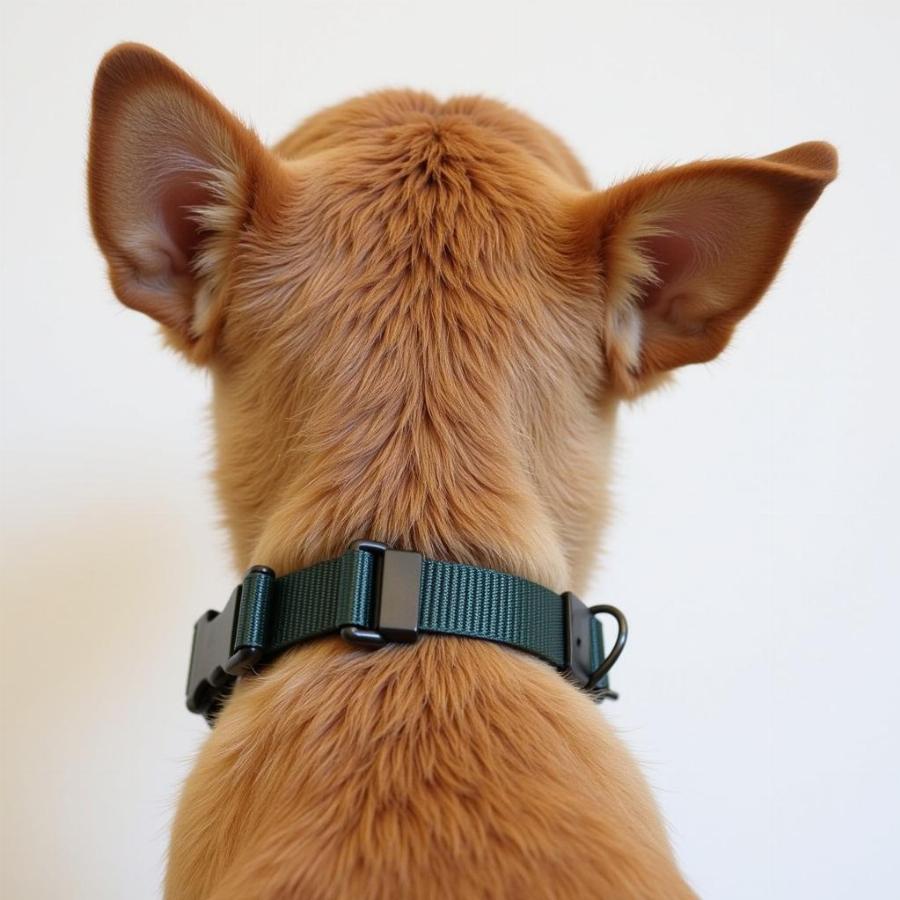Choosing the right training collar for your small dog can feel overwhelming. With so many options available, it’s important to find one that suits your dog’s size, breed, and temperament. This comprehensive guide will walk you through everything you need to know about small dog training collars, ensuring you make the best choice for your furry friend.
Understanding the Needs of Your Small Dog
Before diving into collar types, consider your dog’s unique characteristics. Smaller breeds often have delicate tracheas, making it crucial to choose a collar that won’t cause choking or injury. Additionally, puppies and small dogs learning leash manners might pull or strain against the collar, requiring a secure and comfortable option.
Exploring Small Dog Training Collar Options
1. Flat Collars: A Classic Choice
Flat collars, typically made from nylon or leather, are a popular choice for everyday wear. Ensure the collar fits snugly but allows for two fingers to fit comfortably underneath. While suitable for identification and attaching tags, flat collars might not be ideal for training, especially for strong pullers.
2. Harnesses: Distributing Pressure Evenly
Harnesses are an excellent option for small dogs, as they distribute pressure evenly across the chest, reducing strain on the neck. They offer better control during walks and prevent choking or tracheal damage. Harnesses come in various styles, including back-clip, front-clip, and no-pull options.
3. Head Halters: Gentle Guidance
Head halters, resembling a muzzle, fit around your dog’s snout and behind the ears. They provide gentle guidance by redirecting the dog’s head, discouraging pulling. While effective, some dogs may take time to adjust to wearing a head halter.
4. Martingale Collars: Preventing Slip-Outs
Martingale collars, also known as limited-slip collars, tighten slightly when the dog pulls, preventing them from backing out of the collar. These collars are ideal for dogs with narrow heads or a tendency to slip their collars.
 Martingale Collar on a Small Dog
Martingale Collar on a Small Dog
Choosing the Right Material and Fit
When selecting a training collar for your small dog, prioritize comfort and durability. Soft nylon or padded leather are excellent choices for sensitive skin. Ensure the collar is adjustable to achieve a secure fit as your puppy grows.
Tips for Successful Training Collar Use
- Introduce the collar gradually and positively reinforce your dog’s cooperation.
- Avoid using the collar for punishment or harsh corrections.
- Supervise your dog while wearing the collar, especially during training sessions.
Expert Insights on Small Dog Training Collars
“When choosing a training collar for a small dog, prioritize comfort and safety. Harnesses are often a great option, but ultimately, the best collar depends on your dog’s individual needs and training goals.” – Dr. Emily Carter, Certified Dog Trainer
Conclusion
Finding the right small dog training collar is essential for a positive and effective training experience. By understanding the different types available, considering your dog’s specific needs, and using the collar responsibly, you can enhance your bond and enjoy countless happy walks together.
Beaut Dogs is your ultimate resource for all things related to small dog care and well-being. If you have any further questions or need personalized advice on choosing the perfect training collar for your furry companion, don’t hesitate to reach out to our team at [email protected]. Beaut Dogs is committed to providing you with the information and support you need to give your small dog the best possible life.